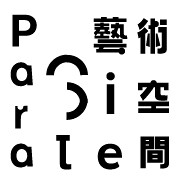September 13–November 24, 2019
22/F, Wing Wah Industrial Building
677 King's Road, Quarry Bay
Hong Kong
info@para-site.art
Archive of the People, Bruce Ding, Fong Fo, Feng Junhua, Grass Stage, i12 + Jiujiu, Intercommon Education, Ko Sin Tung, Sunday Lai Long Sang, Lee Chun Fung, Lee Kit, Patrick Lee, Leung Chi Wo, Leung Mee-ping, Ocean Leung, Leung Po Shan, Lo Lai Lai, Grace Ma Lai-wah, Phoebe Man Ching Ying, Mok Chiu Yu, Ou Feihong, Xiaoshi Qin, Grace Samboh, Tang Kwok Hin, Sara Wong Chi Hang, Wong Ka Ying, Zhu Jianlin, Zi Jie
From the ‘60s through the ‘70s, Café do Brasil was the place for people to hang out and chat over drinks. Situated in a corner enjoying a seaside view, on the second floor of Ocean Terminal in Tsim Sha Tsui, the café features in the literary accounts of many Hong Kong writers as home to countless young intellectuals, a site for “the exploration of radical social thought and politics” (Lui Tai-lok). In the memories of other witnesses, it lives on as just another spot for close-knit crowds to meet and gossip. Either way, when tracing through the long, winding history of cultural spaces in Hong Kong, one sees many of Café do Brasil’s emulators, replacements, and successors.
It is almost impossible to find any visual record of the café today. Filling this void, instead, are fragments from memory—or fantasies, which are at times romantic, stirring or simply mundane—as obscure as the heterogeneous narratives that surround it, as ambivalent as our hopes and hesitations about gathering in public spaces, as suffocating as the fraught notion of publicness in contemporary reality. At a time when certain memories and places are lost or being eroded, while other memories and places are being restored and replayed, how can we connect with one another, and through what historical reference, and amid what sorts of emotional conflicts? The exhibition Café do Brasil recollects the historical fragments of its titular locale and delves into its resonance today. Taking a historical site replete with fantasy and pathos as both the meeting point and the beginning of a conversation, the exhibition invites friends and peers to join a shared discussion in the exhibition space, and to explore a range of topics, from the individualistic to the worldly, from coexistence to consensus.
The exhibition comprises three chapters: Chapter 1: Coffee Shops employs the setting of a roadside café in Para Site’s new permanent ground-floor space to trace two exhibitions from the history of Para Site—Coffee Shop (1998) and 3/4 suggestions for a better living (2007)—taking its cues from reflections on the public function of art spaces Para Site has made throughout its 23-year history to re-engage in this discussion about the public sphere. Occupying the entirety of Para Site’s main exhibition space, Chapter 2: All Tomorrow’s Parties interweaves works by contemporary artists from Hong Kong and mainland China with scavenged fragments that refer to Café do Brasil to encourage an ongoing, multilateral conversation reminiscent of those taking place in a café or teahouse. Finally, Chapter Three: Together, a public programme series taking place throughout the exhibition period, includes extensions of the works featured within it, footnotes to specific discussions, and meetings to start new discussions—a get-together, a shared experience of joy, vertigo, hangover, regret, along with trial-and-error.
Café do Brasil is curated by Qu Chang.
Para Site Art Space is financially supported by the Art Development Matching Grants Scheme of the Government of the Hong Kong Special Administrative Region. The content of these activities does not reflect the views of the Government of the Hong Kong Special Administrative Region.
Founded in 1996, Para Site is Hong Kong’s leading contemporary art centre and one of the oldest and most active independent art institutions in Asia. It produces exhibitions, publications, discursive, and educational projects aimed at forging a critical understanding of local and international phenomena in art and society.


